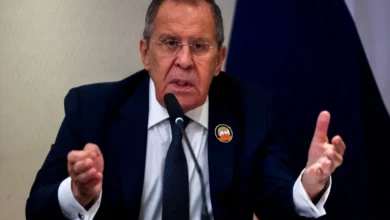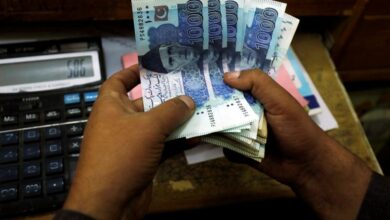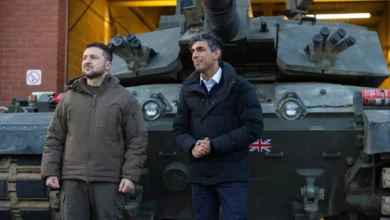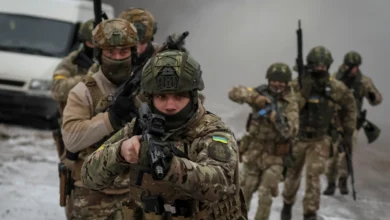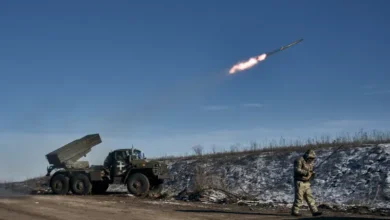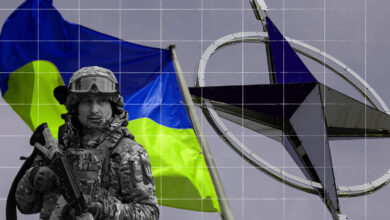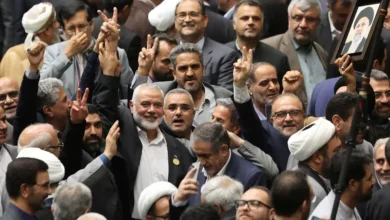Trump announces 90-day tariff pause for most countries
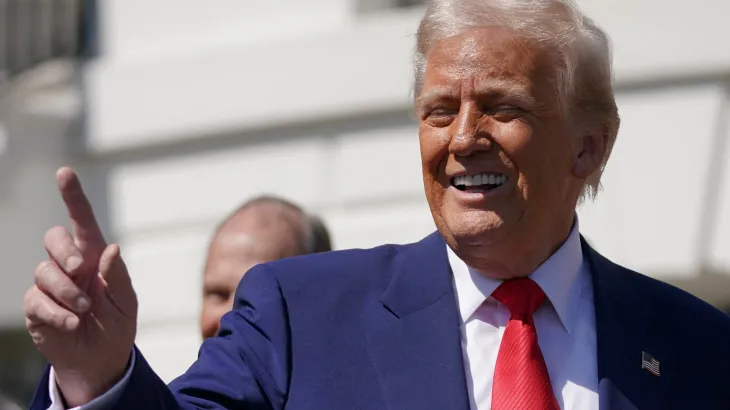
United States President Donald Trump has announced he will raise tariffs against China to 125 percent, in a rapidly escalating trade war that has seen China already retaliate with 84 percent tariffs, effective April 10.
Trump has also sought to reward countries that negotiated in the wake of his latest round of tariffs, which took effect at 12:01am EST on Wednesday (04:01 GMT).‘None of it makes sense’: Democrat responds to Trump tariff strategy
The White House has sought to frame Trump’s tariff pivot as part of a grand negotiating strategy, but some lawmakers aren’t convinced.
In a post on X, Congressman Tom Malinowski, a Democrat, noted that Trump’s increase of tariffs on China from 104 percent to 125 percent carries “no effective difference”.
He also noted that, while Trump and his officials have framed the shift as a reward for countries who did not retaliate, not just China, but Canada and the EU had already announced plans for countermeasures. He added that the 10 percent baseline tariffs are “still a big tax hike”.
“So none of it makes sense, but maybe he’s starting to cave,” he said.‘Unity helps most of all’: Germany’s Merz responds to Trump tariff pivot
Friedrich Merz, who is on track to be Germany’s next chancellor, has said European unity led to the Trump administration’s decision to slow-roll its tariff policy.
The bloc had earlier today approved retaliatory measures against the US, set to go into effect on April 15. The future of those measures was not immediately clear.
“Europeans are determined to defend ourselves, and this example shows that unity helps most of all,” Merz told TV show RTL Direkt in an interview following his conservative bloc’s sealing of a coalition deal with the Social Democrats.
“Let’s all set tariffs of 0 percent on transatlantic trade, and then the problem will be solved,” he said.Faced with questions about tariff policies, Trump says he acts on ‘instinct’
Trump has offered a glimpse inside his method for assigning and adjusting tariffs, emphasising his flexibility over hard-and-fast planning.
As he stood outside the White House with NASCAR drivers, one reporter asked him how he chooses what to do.
“Instinctively more than anything else,” Trump said. “You almost can’t take a pencil to paper. It’s really more of an instinct than anything else.”
“You have to have flexibility. I could say, ‘Here’s a wall, and I’m going to go through that wall, and I’m going to go through it no matter what.’ And you keep going and you can’t go through the wall. Sometimes you have to be able to under the wall or around the wall or over the wall.”
He did acknowledge that some industry insiders and investors had been “queasy” about the economic turbulence his tariffs have wrought. But he emphasised a positive outlook towards the financial markets.
“They change. Look how much they changed today. We went from pretty moderate today, but over the past few days, it looked pretty glum,” he said.
He then asserted that the markets rallied to “the biggest day in financial history” after his latest tariff adjustment.
“That’s a pretty big change. I think the word would be flexible. You have to be flexible.”Majority of US Senate backs Hoekstra as ambassador to Canada
A majority of the US Senate backs Michigan GOP Chairman Pete Hoekstra to be ambassador to Canada, a position he would assume as traditional close ties have been strained by Trump’s tariff policy and comments about annexing the neighbouring country.
As voting continued, the tally was 52 to 28 in favour of confirming Hoekstra, a former ambassador to the Netherlands and business executive.‘A transition to greatness’: Trump pushes sunny economic outlook
Trump has quoted his social media post from earlier in the day, as he took questions about the new tariff plan from reporters outside the White House
“Just be cool. It’s going to work out. And it’s working out, I can tell you — working out maybe faster than I thought,” he said.
“It’s going to take a little conditioning. It’s a transition. I think it’s a transition to greatness. It’s going to be greatness. Our country, there will be nothing like it. And people investing in our country, they’re going to do better than they’ve ever done before.”
Surrounded by NASCAR vehicles, Trump touted new automobile manufacturing coming to the US, though experts have questioned how significant some of those gains are overall.
He also repeated a metaphor he likes to use with tariffs: that they are a medical intervention for a US economy bruised under his predecessor, former US President Joe Biden.
“It’s like a patient is sick. You have to do surgery. The patient is very, very sick. Joe Biden handed us over a country that was in very serious trouble. Economically and in every other way. They let China run away with things. They let other countries run away things,” Trump said.
He added that countries are now lining up to do business with his administration.
“We have many other countries, as you know — many more than 75 — and they all want to come. And they want to come here, or they’ll go to Commerce or they’ll go to Treasury,” he said, referencing two departments of the federal US government.
